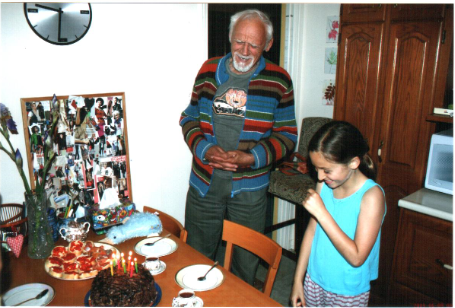Though I was not born in my family’s home country of Russia, having parents who were new to Canadian customs had many influences on me. Because I was born in Canada, my background did not provoke much of an identity crisis, but my parents still brought their traditions into our new suburban home. While it took many years to understand, I learned that these cultural quirks were harmless at worst and added to the fun personal narrative that is my life.
Those who keep a fairly balanced diet would know that eating three meals a day is the standard. But no, not I. From the moment I could consume solid food until the age of 14, I ate four proper meals a day. Breakfast, school lunch, home lunch, and dinner. This was how my mom fed me, so naturally, I assumed this was simply the way things were.
Imagine my surprise when I finally started going over to friends’ houses (albeit later than some), to learn that there was one, only one, meal after school.
After a talk with my mom about my daily meal plan, she explained that she thought it was silly to be awake so late and eat so little. She simply ignored the three-meals rule and continued emulating what her parents had done.
Eventually, I was no longer stifled with a 7:30 dinnertime, allowing me to pursue my dream of eating three balanced meals a day. In retrospect, my mother was right to ensure I was not spending six or more hours without eating. As I grew up, I started to learn that my parents were doing what they thought was best for my well-being for no other reason than previously successful traditions.
While on the topic of food, I can’t leave out tea. Growing up, tea was the only beverage in the house. I seldom drank water, let alone soda or juice.
At school, I was known as the “Tea Girl,” because every day for lunch, my mom would fill my reusable water bottle with piping-hot tea. As with mealtimes, developing a social life made me realize that tea is not the typical drink of 11-year-olds. However, I embraced the honorary title of Tea Girl. It was a harmless quirk, and frankly, my mom’s tea tasted great.
Growing up in a Russian-speaking household, living in an English-speaking city, and going to a French-speaking school meant some words were lost along the way. It is common for people to forget words in one language and remember them in another, and I sometimes went years before I learned the English translation for common words. Among the list are the words “comma” and “acetaminophen,” but my personal favourite was the word “buckwheat.”
In the Gorbounov household, a fan-favourite breakfast food was cooked buckwheat with milk and sugar, like a dense cereal. Called “grechnevaya kasha” in Russian, the term bears a striking resemblance to the Russian words “Greek oatmeal.”
Until the comfortable age of 17, I casually told my friends about the Greek oatmeal I had for breakfast. Upon asking my mom, after a laughing fit that lasted four minutes, she introduced the word buckwheat to my vocabulary and explained that the word “grechnevaya” did not, in fact, even mean “Greek.” Telling this embarrassing story to my Russian roommate earned a similar explosion of laughter, but hearing the words “I thought so too!” reminded me that I was not alone in my language fumbles. More than anything, it was an entertaining connection I shared with my multilingual friends.
Compared to some, my experiences with parents from another country are mild and entertaining. I was lucky enough to rarely deal with clashing cultural differences, and being a second-generation immigrant did not cloud my upbringing. Sometimes though, it is fun to share and enjoy the little things, and for that, I cannot thank my parents enough, even if it earned some confused looks from my peers as I sipped my lemon-infused orange pekoe.









